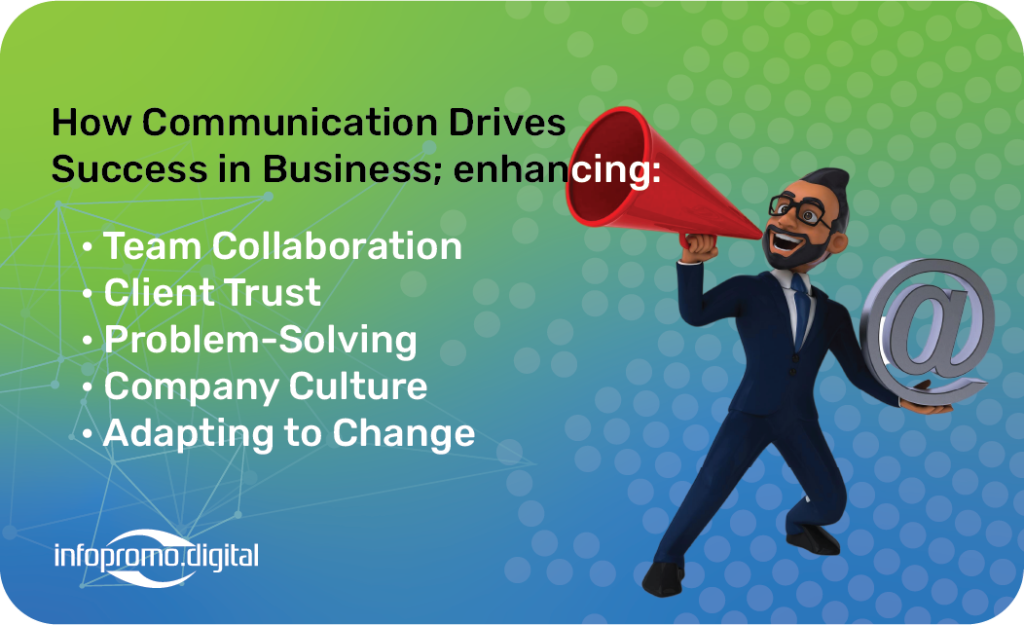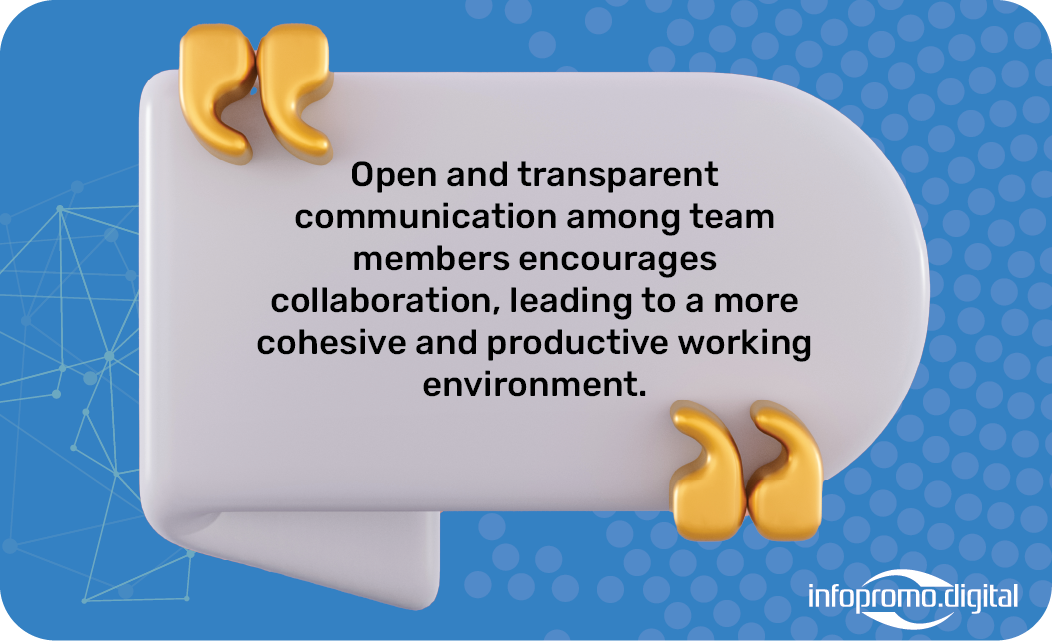

In the business world, communication is the driving force behind success. It fosters collaboration, enables innovation, and strengthens relationships with clients and partners. Let’s explore the ways effective communication contributes to a thriving business environment:
Team Collaboration: Open and transparent communication among team members encourages collaboration. When team members feel comfortable sharing ideas and concerns, it leads to a more cohesive and productive working environment. This collaborative spirit not only enhances productivity but also sparks creativity and innovation, driving the organization forward.
Building Trust with Clients: Clear and honest communication is vital when interacting with clients. Trust is the foundation of any successful business relationship, and open communication plays a significant role in establishing and maintaining that trust. Regular updates, transparent processes, and prompt responses are key to building and retaining client trust.
Problem-Solving and Decision Making: Effective communication facilitates problem-solving and decision-making processes. When teams can communicate their ideas and perspectives freely, they can collectively arrive at optimal solutions. This open exchange of information ensures that decisions are well-informed and consider multiple viewpoints, leading to better outcomes.
Company Culture: Communication shapes the culture of an organization. When leaders prioritize transparent and inclusive communication, it fosters a culture of openness, respect, and innovation. Employees feel valued and heard, which boosts morale and loyalty, creating a positive and dynamic workplace.

Adapting to Change: In a rapidly changing business landscape, clear communication is essential for adapting to new challenges and opportunities. It ensures that everyone is on the same page and ready to respond to changes effectively. Proactive communication about changes and the rationale behind them helps mitigate resistance and smooth transitions.
Enhancing Customer Experience: Personalized and timely communication with customers enhances their experience and satisfaction. By understanding customer needs and preferences, businesses can tailor their interactions to provide exceptional service, fostering loyalty and repeat business.
Crisis Management: During crises, effective communication is critical. Clear, calm, and accurate communication helps manage the situation, mitigate risks, and maintain stakeholder confidence. Having a robust communication plan in place ensures that all parties are informed and actions are coordinated efficiently.
Employee Engagement: Regular and meaningful communication with employees keeps them engaged and motivated. Sharing company goals, achievements, and feedback helps align employees with the organization’s mission and objectives, driving collective success.
Innovation and Creativity: Open communication channels encourage the free flow of ideas and innovation. When employees feel safe to express their thoughts and suggestions, it leads to creative solutions and continuous improvement, giving the business a competitive edge.
Global Connectivity: In a globalized economy, effective communication bridges geographical and cultural gaps. Utilizing advanced communication tools enables seamless interaction across different regions, enhancing collaboration and expanding business opportunities.
By recognizing the power of communication, businesses can unlock their full potential and thrive in an ever-evolving market. Embracing effective communication practices not only drives success but also creates a resilient and adaptive organization poised for long-term growth.




